Keeping their England international was the main focus of the summer at Old Trafford.
The summer transfer window closed for Manchester United with a sense of calm. True the club had failed in bids for Cesc Fabregas and Leighton Baines — their two top targets — but the best piece of business was, according to senior sources, keeping Wayne Rooney.
"If you had been able to click your fingers on the day the transfer window opened and told us that when it closed Wayne Rooney would still be at the club, and nothing else would happen, then we would have absolutely taken that," said one source.
"He was the biggest concern we had and it was the number one focus for several key people at the club." The source added: "Chelsea were unbelievably serious about trying to get him. They had heard that the player was going to try and see what was out there at the end of last season and wanted to make sure that if he left it was to join them."
But United had no intention of selling. Two bids were rejected but, as they toyed with a third, of up to pounds 40million, Chelsea came to realise it was not going to happen even if Jose Mourinho mischievously waited until after the two sides met at Old Trafford — on August 26 — before he confirmed that fact. It is remarkable that, once again, Rooney has been the dominant English footballer going into a season.
Dominant not just because of his ability, which he has at times struggled to fully exploit, through fitness and other issues, but also in terms of the talking points and headlines he has generated.
That ability is not questioned — the application of it sometimes is — although United do not subscribe to the school of thought that after nine years it might have been in the club's and player's interests for him to move on.
Maybe if he was sold abroad, if that craved interest from Barcelona or Bayern Munich had materialised, United may have thought differently. But they had no intention of allowing Rooney to remain in the Premier League if he did not remain with them.
Hopefully that faith — and the measured approach of United's new manager David Moyes, who spoke about helping Rooney break the club's goalscoring records but also the need for him to get back to the "level" he can achieve, will be vindicated.
Certainly Rooney appears calmer than during the summer. The determination to keep Rooney is why United showed no interest in Mesut Ozil when he was offered to them weeks ago before he joined Arsenal last Monday - not even inquiring about the price and certainly not making an offer - or Willian when he was made available by Anzhi Makhachkala.
Instead, for Moyes, Rooney was to be his first-choice number 10 - the main playmaker with the team-strengthening priorities in other areas. United now hope - and believe - that they have not only convinced Rooney it is in his best interests to stay but that he will further his career with them.
That "focus" on Rooney, however, did not distract from other business. The planning for the next transfer window - and, more crucially, the next one after - started last week immediately after this window closed.
There will be no inquest, as none is felt needed. Far from being a chaotic failure, as some have suggested, United are pleased with their work. Time will tell.
There are still those clear plans as to where the club wants to strengthen: central midfield, left-back and, eventually, a top-quality central defender with Rio Ferdinand and Nemanja Vidic well into their thirties and their understudies suffering from injuries.
United will also investigate as to whether there are any "top stars" who can be dislodged. The club is keen to flex its financial muscle. But only for the right player.
There have been suggestions that United now need a director of football but there is no inclination at the club to follow this route. David Moyes, with the mandate of a six-year contract, has been given the responsibility of who to sell and who to buy with executive vice-chairman Ed Woodward then tasked with negotiating the deals.
That traditional approach, which United claim shows huge faith in the manager, and also a commitment that he is in the job for the long haul, will continue. Certainly the unique nature of this window - with a rush of money from the new television deal inflating prices and Moyes not in place until July 1 - affected matters.
United did not want to impose players on the new manager, so he started with a clean slate - while the club also believe that the work he has done on the training field will hopefully see a fresh approach from some players, such as Anderson and Nani, who appeared surplus to requirements.
The first-team squad is exceptionally big, with four new additions, but will be trimmed next year once Moyes has decided who to move on. The deals United did pursue were clear. They wanted Baines, they wanted Fabregas and they also wanted Marouane Fellaini and there was always a quiet confidence, which proved correct, that signing the Belgian midfielder would be the easiest to land.
Why then did United not trigger the pounds 23million release clause in Felliani's contract at Everton and allow it to lapse? The answer is simple: they decided on a strategy to try and get Baines and knew that if they signed Fellaini early then Everton would have the money they needed and be able to resist any attempt to also sign Baines.
So United made a joint bid, after having an initial offer of pounds 12million for Baines rejected, although the level at which they initially went in at was undeniably low. But they also knew that both players wanted to join them.
At the same time United were offered Fabio Coentrao by Real Madrid but did not want to give up on Baines. "It was always going to be difficult to get Leighton out which is why we did a joint bid," the source said. "It was the tactic to try and make it happen."
As soon as it eventually became apparent that Everton would not countenance losing both players, no matter the offer, United moved for Fellaini, disputing they paid the pounds 27.5million it was claimed they did, while they were then offered — and agreed — to take Coentrao on loan. That deal collapsed because Real were unable to sign Guilherme Siqueira from Granada as his replacement.
The failure to sign Fabregas is also explainable. United had received encouragement that although, in his heart, the midfielder wanted to stay at Barcelona his head was telling him that he was effectively competing with Pedro and Alexis Sanchez for one place.
"He was very much thinking about his future," the source added. "But it was always a less than 50 per cent chance we could get him although it was definitely worth trying." In truth, also, there was a will to try and make a mark with Fabregas.
There was a sense of nervousness if a player from his former club - Fellaini - became Moyes' first big signing while there were even indications, right up until the window closed, from those close to Fabregas that he was still unsure of what to do.
"We have been looking since 2007 for top-class central midfielders to improve the team," the source said. "And that search will continue." Ander Herrera, from Athletic Bilbao, was a player United had tracked for two years. One offer was made, of around pounds 20million plus pounds 3million in add-ons, and rejected and United then walked away. There was no deadline day attempt, no wrangle over Basque tax laws - and no representatives from United sent to the Spanish league offices. Where does it all leave United and Moyes?
There will be no repeat of this window, it is hoped, with the club wanting to do its business, in future, early. There is also, though, no sense of panic and certainly no pressure on Moyes with United happy with the way he has gone about his job. And not least with the way he has handled Wayne Rooney.
![submenu-img]() Firing at Salman Khan's house: Shooter identified as Gurugram criminal 'involved in multiple killings', probe begins
Firing at Salman Khan's house: Shooter identified as Gurugram criminal 'involved in multiple killings', probe begins![submenu-img]() Salim Khan breaks silence after firing outside Salman Khan's Mumbai house: 'They want...'
Salim Khan breaks silence after firing outside Salman Khan's Mumbai house: 'They want...'![submenu-img]() India's first TV serial had 5 crore viewers; higher TRP than Naagin, Bigg Boss combined; it's not Ramayan, Mahabharat
India's first TV serial had 5 crore viewers; higher TRP than Naagin, Bigg Boss combined; it's not Ramayan, Mahabharat![submenu-img]() Vellore Lok Sabha constituency: Check polling date, candidates list, past election results
Vellore Lok Sabha constituency: Check polling date, candidates list, past election results![submenu-img]() Meet NEET-UG topper who didn't take admission in AIIMS Delhi despite scoring AIR 1 due to...
Meet NEET-UG topper who didn't take admission in AIIMS Delhi despite scoring AIR 1 due to...![submenu-img]() DNA Verified: Is CAA an anti-Muslim law? Centre terms news report as 'misleading'
DNA Verified: Is CAA an anti-Muslim law? Centre terms news report as 'misleading'![submenu-img]() DNA Verified: Lok Sabha Elections 2024 to be held on April 19? Know truth behind viral message
DNA Verified: Lok Sabha Elections 2024 to be held on April 19? Know truth behind viral message![submenu-img]() DNA Verified: Modi govt giving students free laptops under 'One Student One Laptop' scheme? Know truth here
DNA Verified: Modi govt giving students free laptops under 'One Student One Laptop' scheme? Know truth here![submenu-img]() DNA Verified: Shah Rukh Khan denies reports of his role in release of India's naval officers from Qatar
DNA Verified: Shah Rukh Khan denies reports of his role in release of India's naval officers from Qatar![submenu-img]() DNA Verified: Is govt providing Rs 1.6 lakh benefit to girls under PM Ladli Laxmi Yojana? Know truth
DNA Verified: Is govt providing Rs 1.6 lakh benefit to girls under PM Ladli Laxmi Yojana? Know truth![submenu-img]() Remember Jibraan Khan? Shah Rukh's son in Kabhi Khushi Kabhie Gham, who worked in Brahmastra; here’s how he looks now
Remember Jibraan Khan? Shah Rukh's son in Kabhi Khushi Kabhie Gham, who worked in Brahmastra; here’s how he looks now![submenu-img]() From Bade Miyan Chote Miyan to Aavesham: Indian movies to watch in theatres this weekend
From Bade Miyan Chote Miyan to Aavesham: Indian movies to watch in theatres this weekend ![submenu-img]() Streaming This Week: Amar Singh Chamkila, Premalu, Fallout, latest OTT releases to binge-watch
Streaming This Week: Amar Singh Chamkila, Premalu, Fallout, latest OTT releases to binge-watch![submenu-img]() Remember Tanvi Hegde? Son Pari's Fruity who has worked with Shahid Kapoor, here's how gorgeous she looks now
Remember Tanvi Hegde? Son Pari's Fruity who has worked with Shahid Kapoor, here's how gorgeous she looks now![submenu-img]() Remember Kinshuk Vaidya? Shaka Laka Boom Boom star, who worked with Ajay Devgn; here’s how dashing he looks now
Remember Kinshuk Vaidya? Shaka Laka Boom Boom star, who worked with Ajay Devgn; here’s how dashing he looks now![submenu-img]() DNA Explainer: How Iranian projectiles failed to breach iron-clad Israeli air defence
DNA Explainer: How Iranian projectiles failed to breach iron-clad Israeli air defence![submenu-img]() DNA Explainer: What is India's stand amid Iran-Israel conflict?
DNA Explainer: What is India's stand amid Iran-Israel conflict?![submenu-img]() DNA Explainer: Why Iran attacked Israel with hundreds of drones, missiles
DNA Explainer: Why Iran attacked Israel with hundreds of drones, missiles![submenu-img]() What is Katchatheevu island row between India and Sri Lanka? Why it has resurfaced before Lok Sabha Elections 2024?
What is Katchatheevu island row between India and Sri Lanka? Why it has resurfaced before Lok Sabha Elections 2024?![submenu-img]() DNA Explainer: Reason behind caused sudden storm in West Bengal, Assam, Manipur
DNA Explainer: Reason behind caused sudden storm in West Bengal, Assam, Manipur![submenu-img]() Firing at Salman Khan's house: Shooter identified as Gurugram criminal 'involved in multiple killings', probe begins
Firing at Salman Khan's house: Shooter identified as Gurugram criminal 'involved in multiple killings', probe begins![submenu-img]() Salim Khan breaks silence after firing outside Salman Khan's Mumbai house: 'They want...'
Salim Khan breaks silence after firing outside Salman Khan's Mumbai house: 'They want...'![submenu-img]() India's first TV serial had 5 crore viewers; higher TRP than Naagin, Bigg Boss combined; it's not Ramayan, Mahabharat
India's first TV serial had 5 crore viewers; higher TRP than Naagin, Bigg Boss combined; it's not Ramayan, Mahabharat![submenu-img]() This film has earned Rs 1000 crore before release, beaten Animal, Pathaan, Gadar 2 already; not Kalki 2898 AD, Singham 3
This film has earned Rs 1000 crore before release, beaten Animal, Pathaan, Gadar 2 already; not Kalki 2898 AD, Singham 3![submenu-img]() This Bollywood star was intimated by co-stars, abused by director, worked as AC mechanic, later gave Rs 2000-crore hit
This Bollywood star was intimated by co-stars, abused by director, worked as AC mechanic, later gave Rs 2000-crore hit![submenu-img]() IPL 2024: Rohit Sharma's century goes in vain as CSK beat MI by 20 runs
IPL 2024: Rohit Sharma's century goes in vain as CSK beat MI by 20 runs![submenu-img]() RCB vs SRH IPL 2024 Dream11 prediction: Fantasy cricket tips for Royal Challengers Bengaluru vs Sunrisers Hyderabad
RCB vs SRH IPL 2024 Dream11 prediction: Fantasy cricket tips for Royal Challengers Bengaluru vs Sunrisers Hyderabad ![submenu-img]() IPL 2024: Phil Salt, Mitchell Starc power Kolkata Knight Riders to 8-wicket win over Lucknow Super Giants
IPL 2024: Phil Salt, Mitchell Starc power Kolkata Knight Riders to 8-wicket win over Lucknow Super Giants![submenu-img]() IPL 2024: Why are Lucknow Super Giants wearing green and maroon jersey against Kolkata Knight Riders at Eden Gardens?
IPL 2024: Why are Lucknow Super Giants wearing green and maroon jersey against Kolkata Knight Riders at Eden Gardens?![submenu-img]() IPL 2024: Shimron Hetmyer, Yashasvi Jaiswal power RR to 3 wicket win over PBKS
IPL 2024: Shimron Hetmyer, Yashasvi Jaiswal power RR to 3 wicket win over PBKS![submenu-img]() Watch viral video: Isha Ambani, Shloka Mehta, Anant Ambani spotted at Janhvi Kapoor's home
Watch viral video: Isha Ambani, Shloka Mehta, Anant Ambani spotted at Janhvi Kapoor's home![submenu-img]() This diety holds special significance for Mukesh Ambani, Nita Ambani, Isha Ambani, Akash, Anant , it is located in...
This diety holds special significance for Mukesh Ambani, Nita Ambani, Isha Ambani, Akash, Anant , it is located in...![submenu-img]() Swiggy delivery partner steals Nike shoes kept outside flat, netizens react, watch viral video
Swiggy delivery partner steals Nike shoes kept outside flat, netizens react, watch viral video![submenu-img]() iPhone maker Apple warns users in India, other countries of this threat, know alert here
iPhone maker Apple warns users in India, other countries of this threat, know alert here![submenu-img]() Old Digi Yatra app will not work at airports, know how to download new app
Old Digi Yatra app will not work at airports, know how to download new app
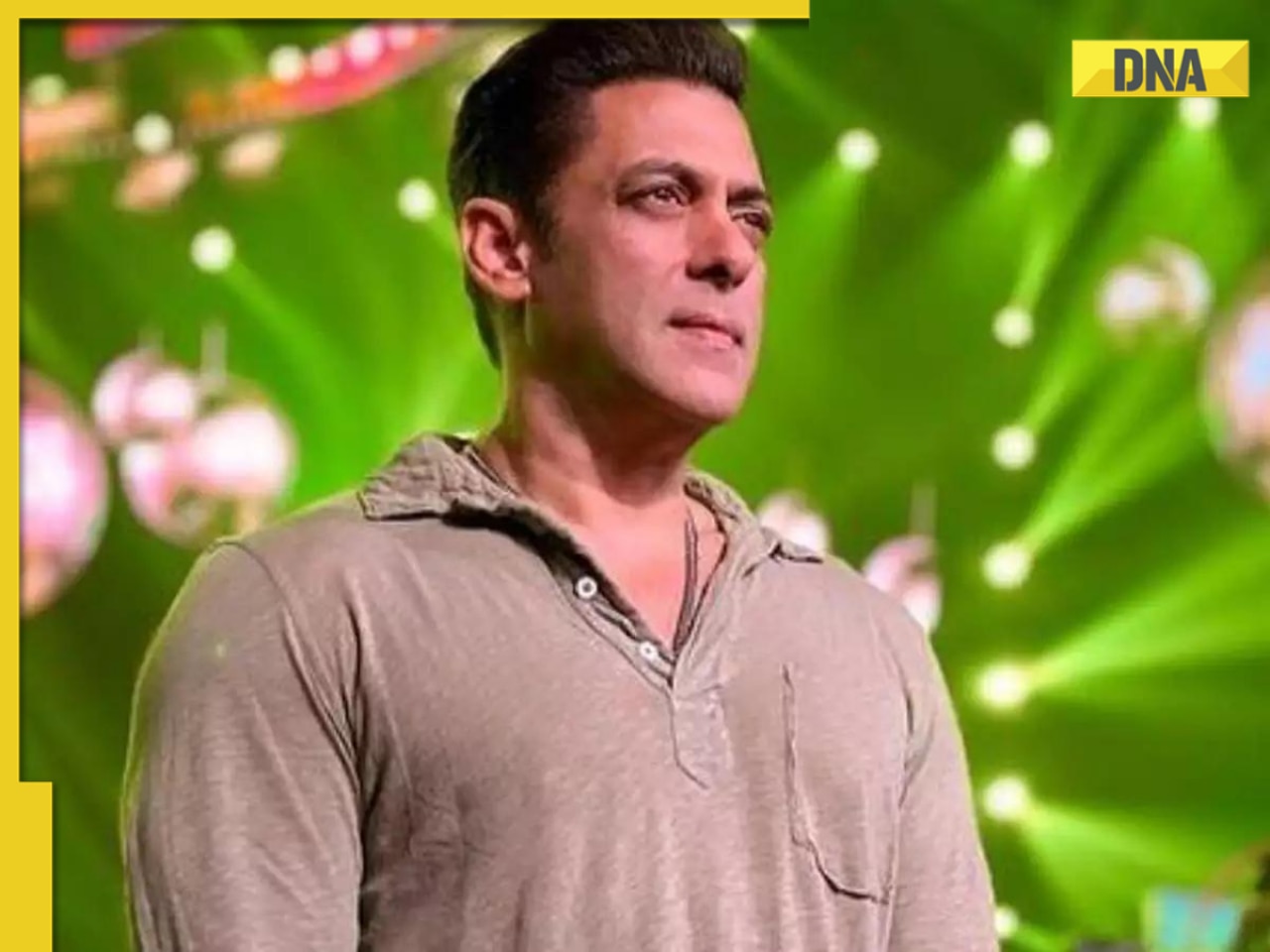
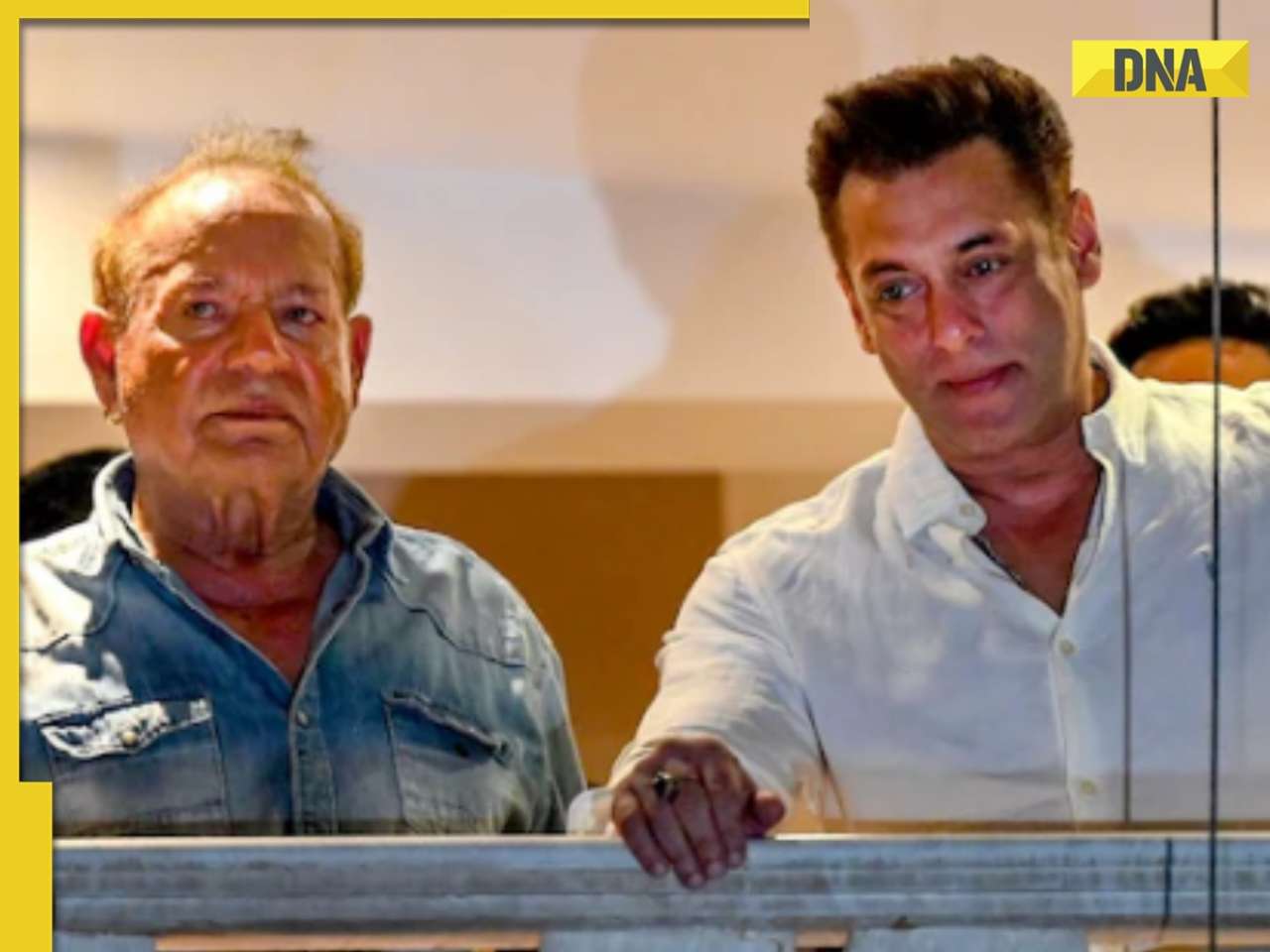
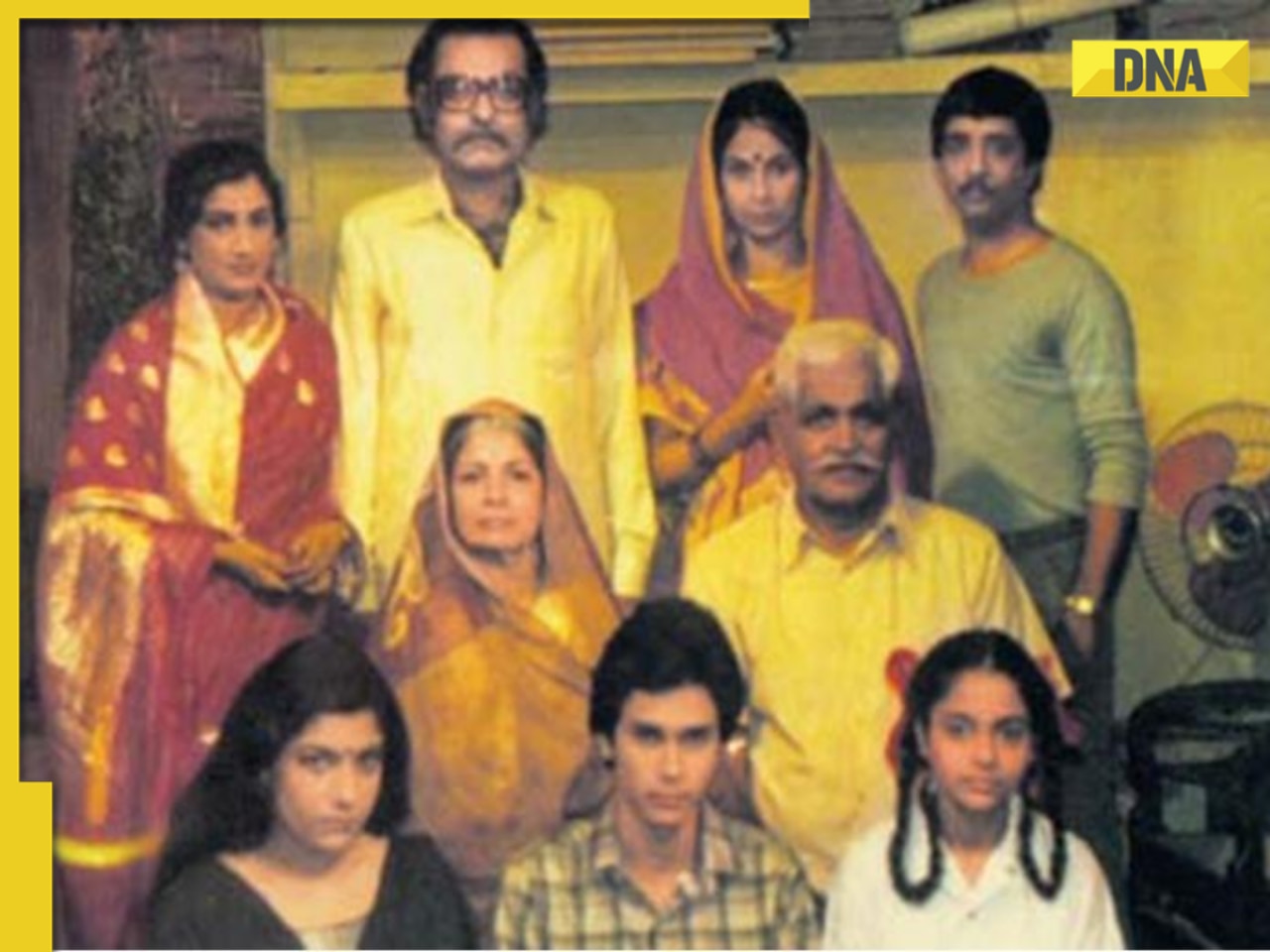
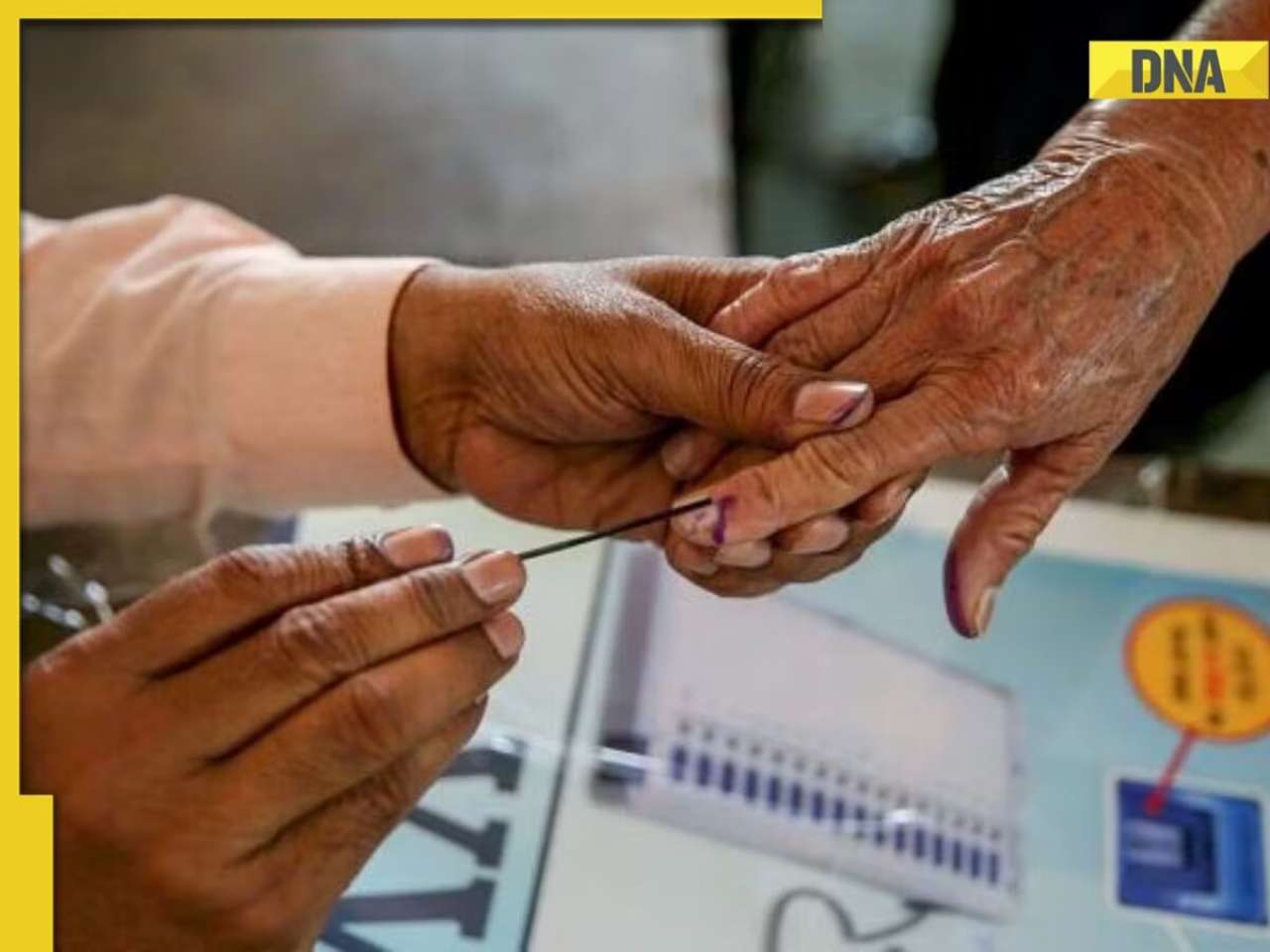





















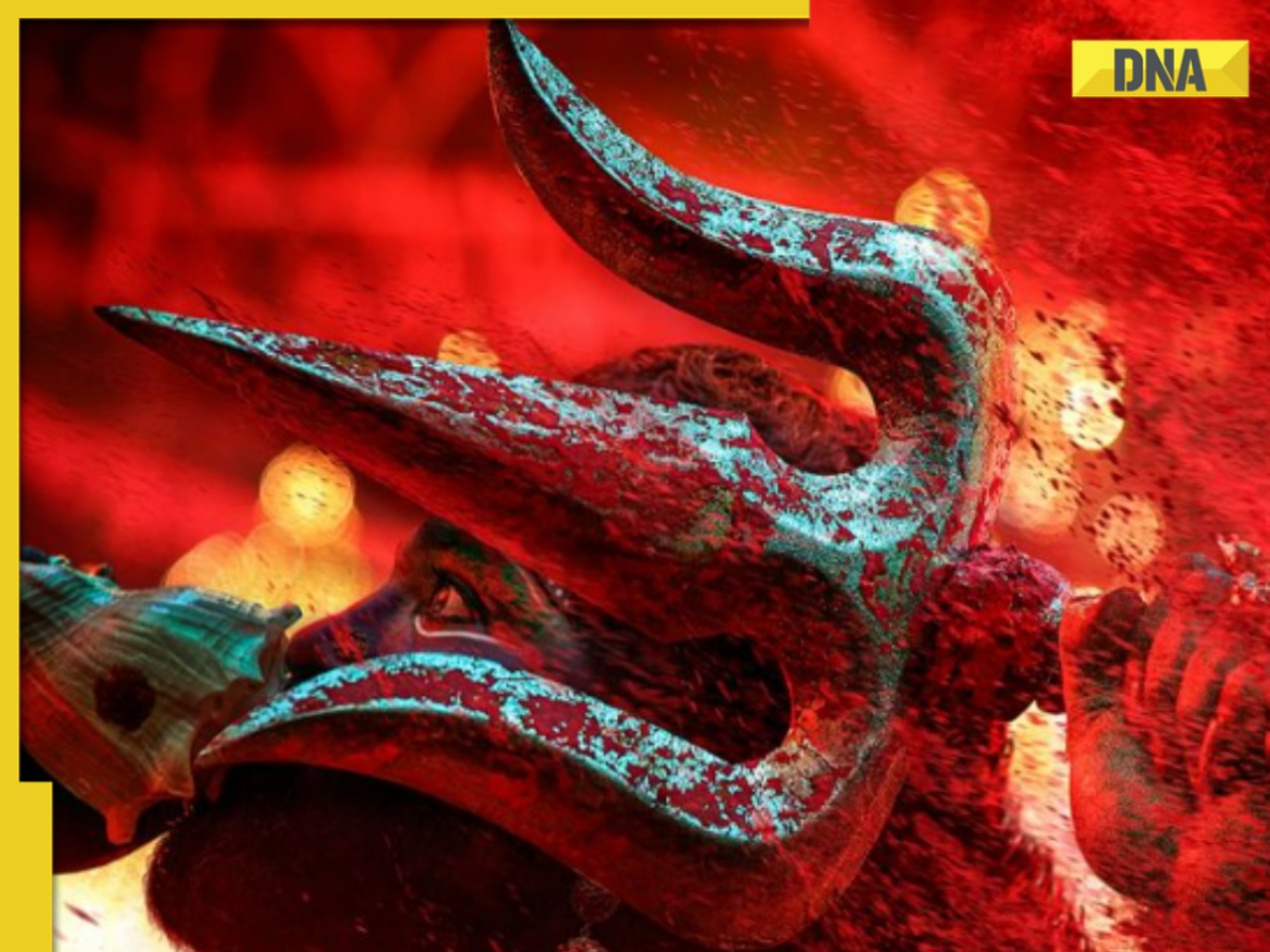
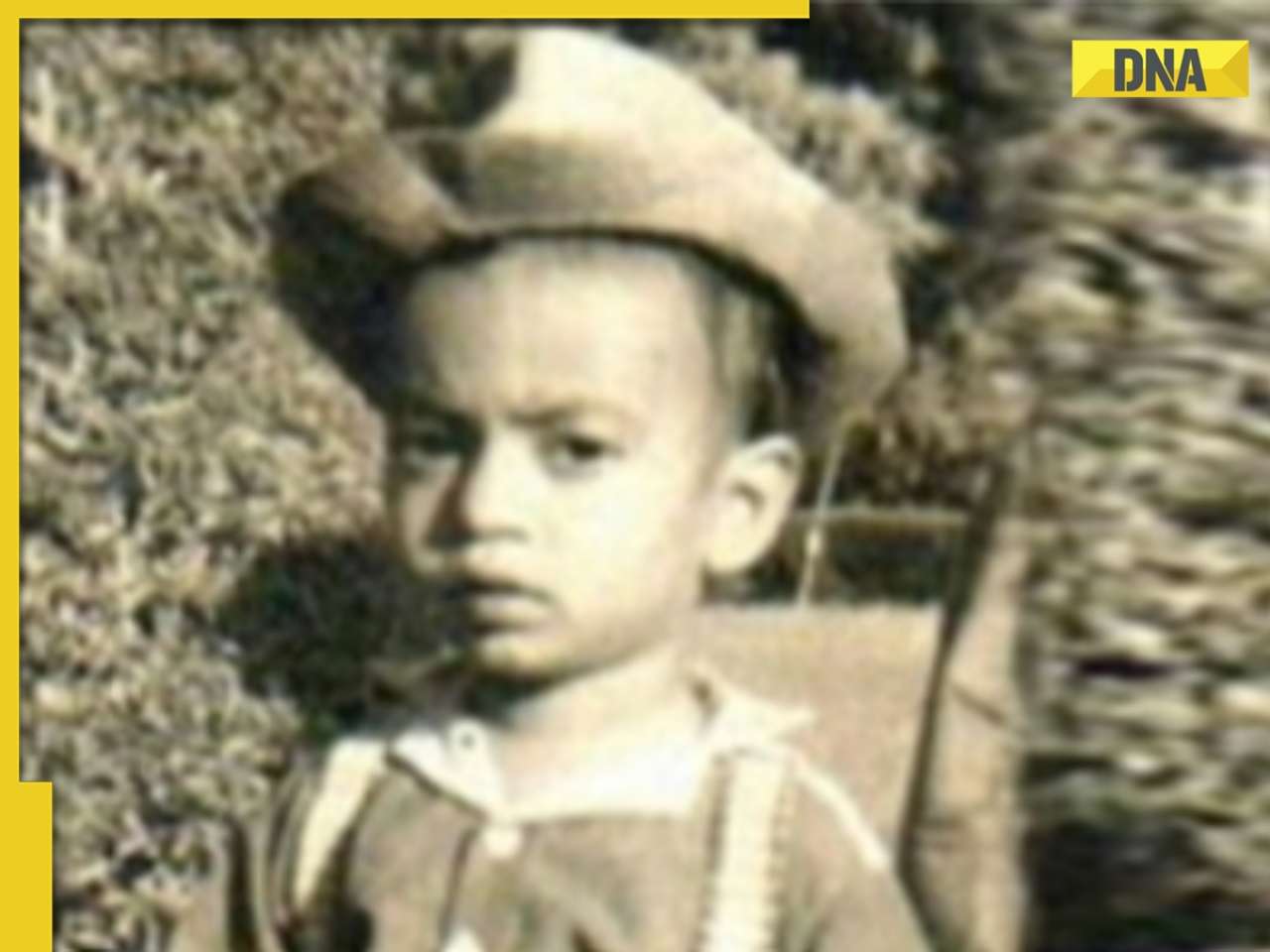


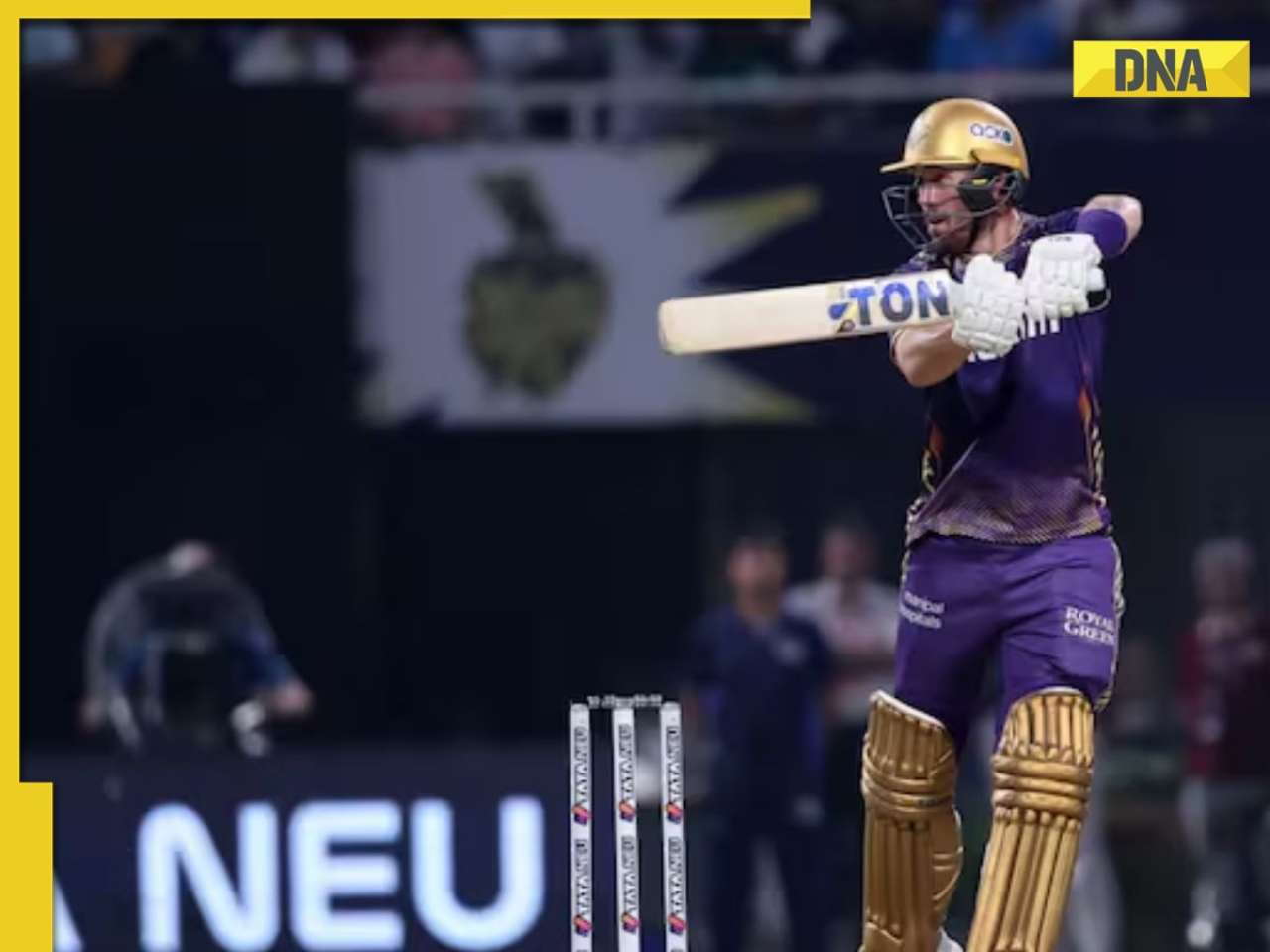
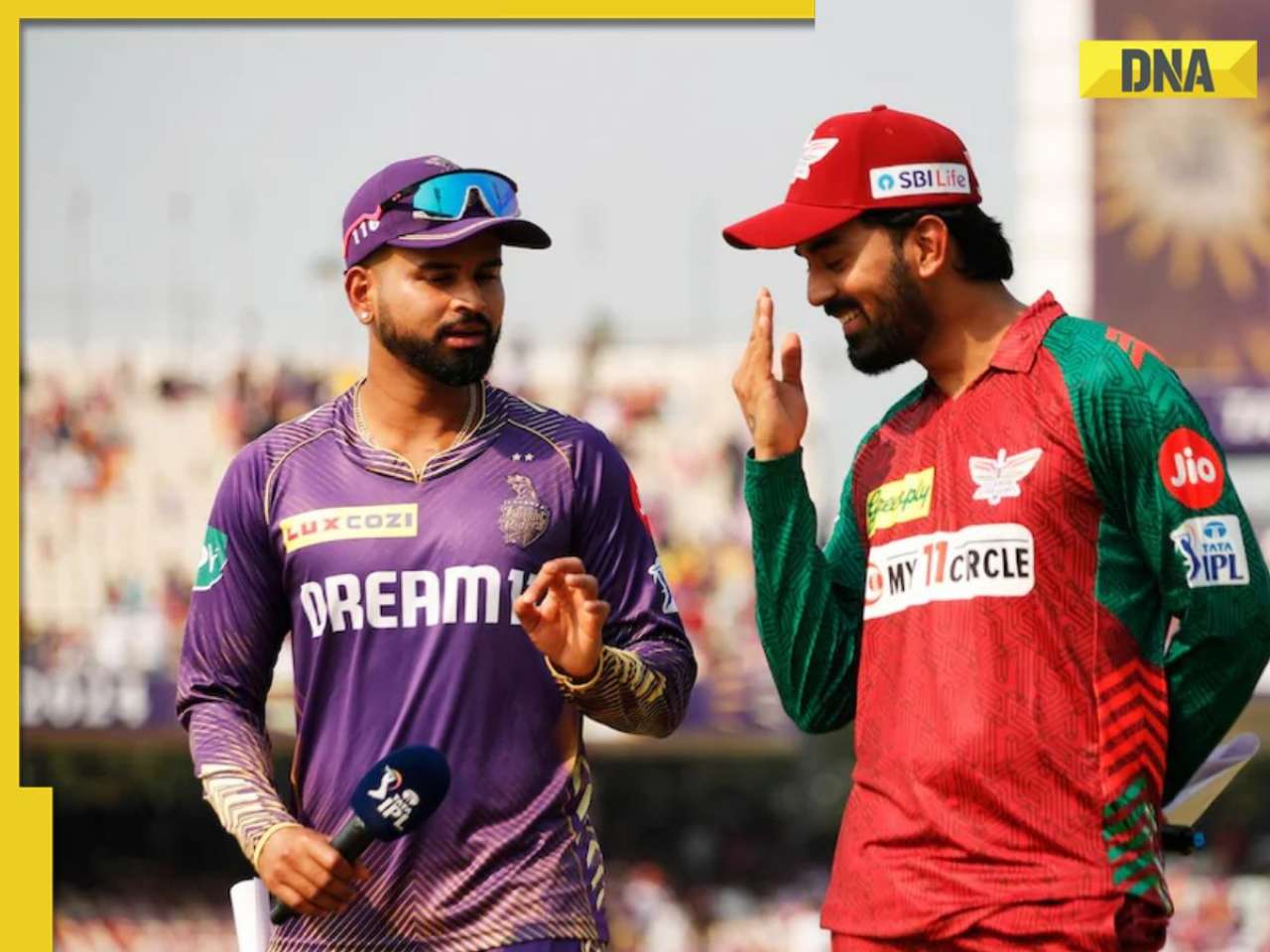
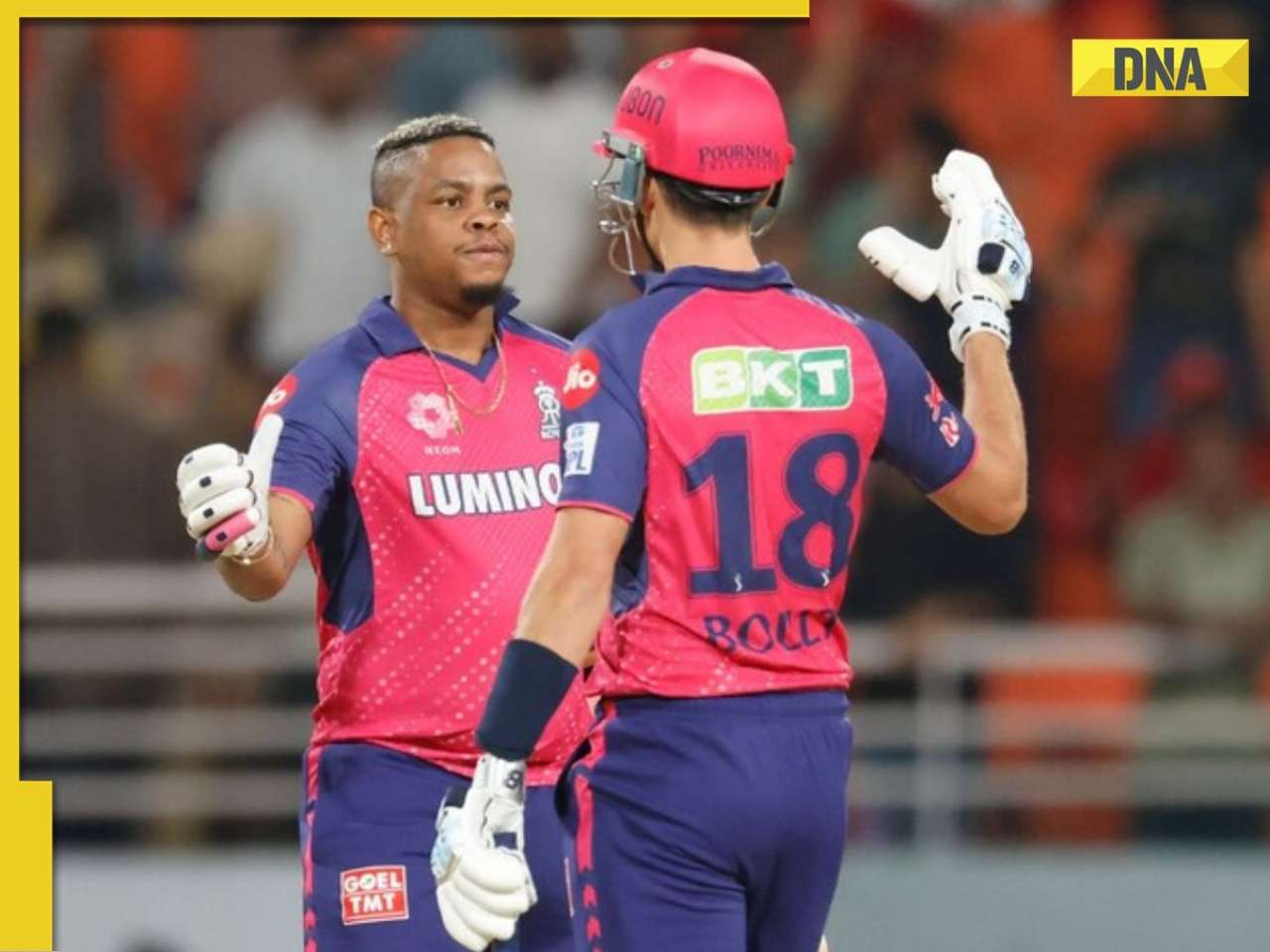






)




)
)
)
)
)
)